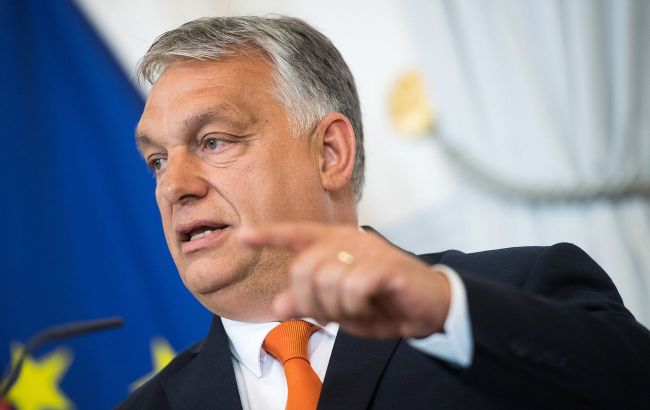European Commission to punish Hungary for law on foreign agent status
 Prime Minister of Hungary Viktor Orban (photo: Getty Images)
Prime Minister of Hungary Viktor Orban (photo: Getty Images)
On Wednesday, February 7, the European Commission (EC) initiated the process of formally condemning Hungary for a new law imposing sanctions on organizations funded from abroad. According to human rights activists, the law is seen as an equivalent to Russia's law on foreign agents and is intended to silence government opposition during the election period, reports Politico.
Budapest’s Defense of Sovereignty measure, adopted late last year, creates a new authority with powers to investigate political activities carried out on behalf of, or funded by, a foreign interest. In some circumstances, people using foreign money to influence elections could face jail time. The government says the law is meant to protect the will of voters from undue foreign interference.
At the same time, organizations advocating for freedom of the press and human rights liken this measure to the Russian law on foreign agents, which Moscow utilizes to silence critics receiving funding from abroad. The Council of Europe called for the Hungarian law to be abandoned, saying it could be weaponized against political opposition.
On Wednesday, the European Commission initiated the so-called infringement procedure after determining that the Hungarian law violates several fundamental rights enshrined in EU legislation, including the right to privacy, freedom of expression, and association.
Budapest now has two months to reply and address the Commission’s concerns, or else the Commission can escalate to the next stage of the process, a so-called reasoned opinion formally calling on the government to comply with EU law.
The process regarding violations in the Sovereignty Protection Act is just the latest round in the tug-of-war between Brussels and Hungarian Prime Minister Viktor Orban on the rule of law. This is not the first time they have clashed over foreign-funded organizations: in 2020, the EU's top court overturned a 2017 law that required some NGOs with foreign funding to register as foreign-funded organizations.
More recently, the Commission and civil society groups have tangled over how to balance protecting free speech amid democratic backsliding in places like Hungary, while also blocking malign foreign interference from the likes of China and Russia.
In 2023, the Commission proposed requiring all foreign-funded interest representatives to enter details in national registries, arguing that this would block the likes of Orban from imposing even more stringent measures. Yet human rights groups, including Transparency International EU and the European Partnership for Democracy, say this will only rubber-stamp Orban’s efforts.
Contradictions between Hungary and the EU
Over the past few months, a series of disputes have arisen between Budapest and Brussels on political matters.
One such issue was the EU aid package to support Ukraine under the Ukraine Facility program, amounting to €50 billion for the period 2024-2027.
On December 14, 2023, EU leaders discussed this initiative at the European Council summit in Brussels. Twenty-six countries supported providing funds to Ukraine, but Hungary vetoed this decision.
Budapest refused to support the new aid package for Ukraine until the EU released €30 billion frozen for Hungary. Previously, Brussels had blocked these funds due to the rule of law and corruption issues in the country. However, the EU unfroze €10 billion to gain Hungary's consent to start negotiations on Ukraine's EU accession. Budapest must fulfill a series of conditions to unlock the remaining funds.
In early February, representatives of EU member states threatened to strip Hungarian Prime Minister Viktor Orban of his voting rights for blocking the financial aid package for Ukraine.
Additionally, Hungarian ruling parties are delaying the ratification of Sweden's NATO accession.


